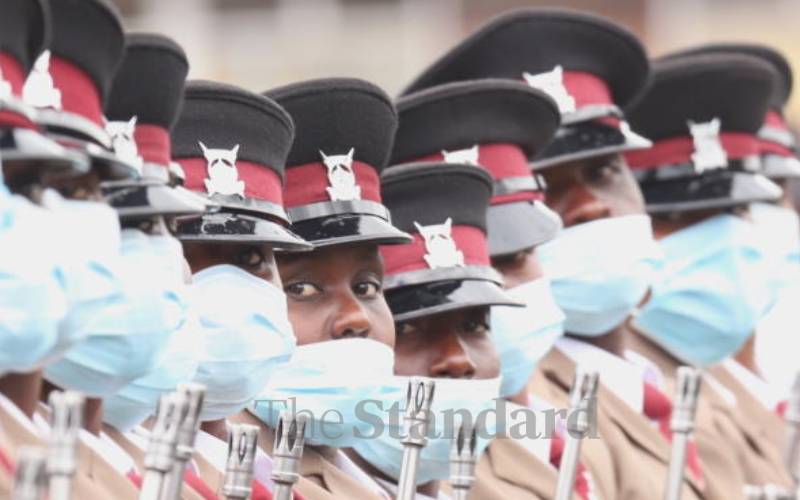×
The Standard e-Paper
Kenya’s Boldest Voice

AP officers on a march during a past parade at Embakasi training school. [Denish Ochieng, Standard]
Safety and security are personal. They mean one is able to walk through Nairobi’s streets, for example, without fear and with a belief that one is free from personal danger.